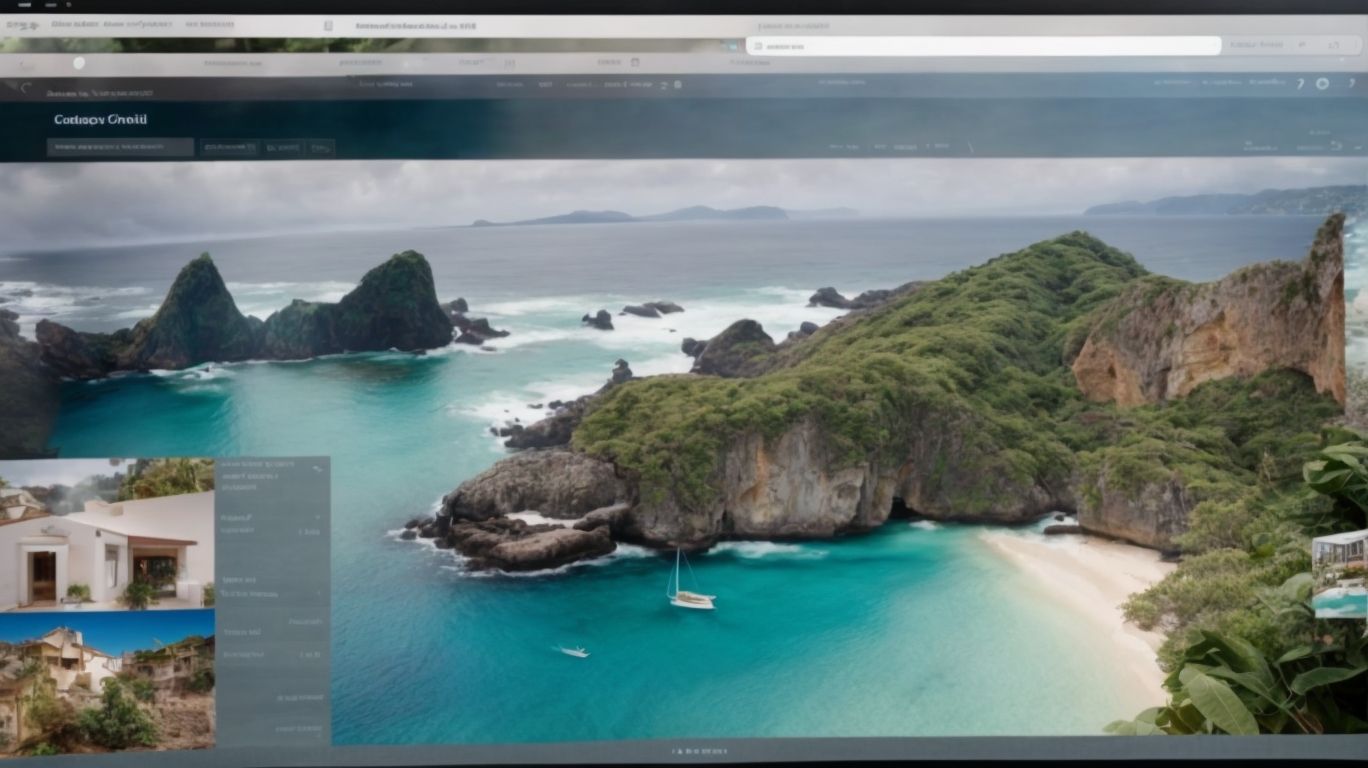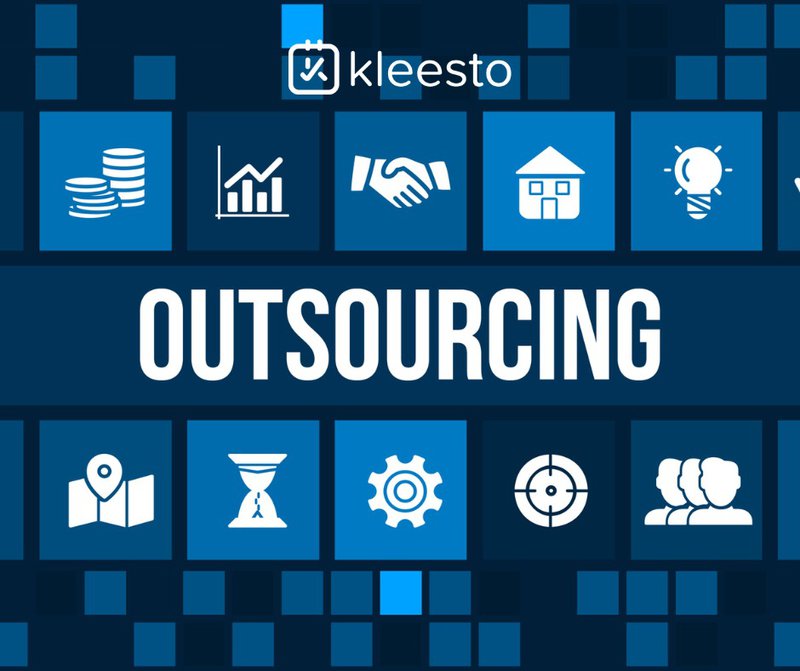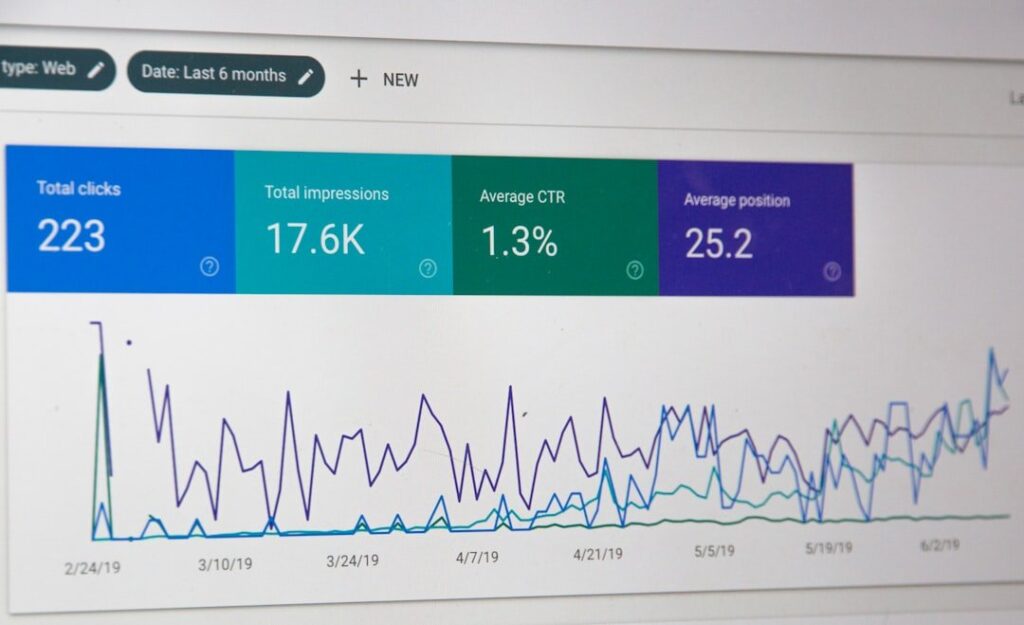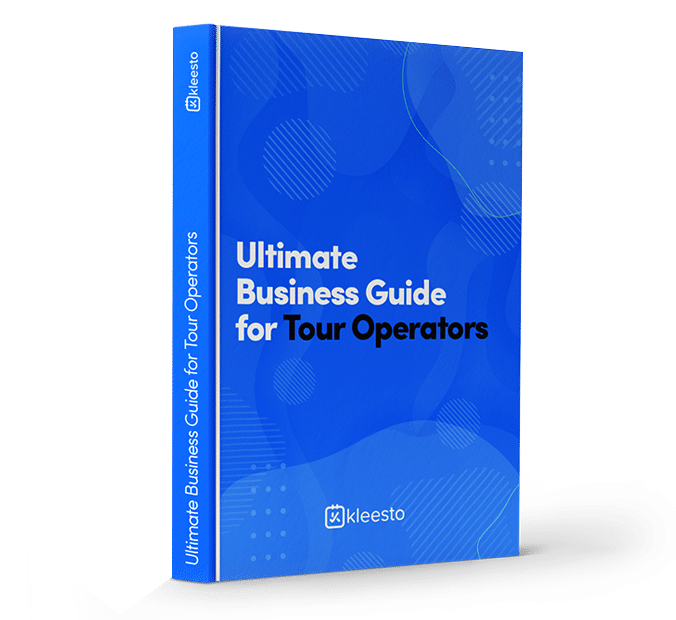Looking to boost your travel website’s visibility and drive more bookings?
This guide delves into Travel Website Optimization, covering search intent, implementing SEO practices, and everything you need to optimize your travel website successfully.
Find out how kleesto can help achieve your SEO goals with a customized strategy and ongoing monitoring.
Stay tuned for successful case studies of travel website optimization and start skyrocketing your bookings today!
Key Takeaways:
- Understand the importance of travel website optimization and how it can increase traffic and bookings for your business.
- Follow best practices such as keyword research, quality content creation, and local SEO strategies to improve your website’s search ranking.
- Consider partnering with a professional SEO agency to optimize your travel website and achieve successful results.
What is Travel Website Optimization?
Travel Website Optimization involves enhancing your website to rank higher in search engine results, ultimately driving more organic traffic and increasing bookings for your travel business.
Effective SEO strategies play a pivotal role in improving the visibility of your travel website. By incorporating relevant keywords in your content, meta descriptions, and title tags, you can attract users actively searching for travel-related information. On-page optimization techniques such as optimizing images, improving site speed, and creating compelling content can further boost your website’s search engine rankings. Off-page optimization, including link building and social media marketing, helps establish your site’s authority in the travel industry. Ensuring that your website is user-friendly and mobile-responsive enhances the overall user experience, leading to higher engagement and conversion rates. For travel websites, this also means simplifying the travel booking process through an intuitive interface.
Why is Travel Website SEO Important for Your Website?

Travel SEO is crucial for your website as it helps your travel business stand out in Google search results, attract potential customers, and increase bookings through optimized content and Google Business Profile.
By focusing on SEO strategies tailored to the travel industry, you can enhance your website’s visibility in search engine rankings, ensuring that your services are easily discoverable by users seeking travel-related information. Investing in local SEO tactics like optimizing for location-specific keywords and setting up a Google Business Profile can significantly boost your website’s online presence within your target audience’s geographical area, leading to increased organic traffic and higher chances of user engagement.
Understanding the Search Intent of Travelers

Understanding the search intent of travelers is essential for tailoring your content and services to match their needs and preferences, ultimately driving more traffic and conversions to your travel website.
When travelers embark on a journey, they often have specific objectives in mind. Whether it’s gathering information about exotic destinations. Whether it’s researching destinations, finding the best route to get there, or actually booking flights and accommodations, or things to do, their intentions shape their search behavior and highlight the importance of SEO for travel booking websites. By recognizing these various travel intents – be it informational, navigational, or transactional – you can optimize the user experience on your website. An intuitive search interface, engaging content, and seamless booking process can greatly enhance the overall journey for your users, leading to higher satisfaction and repeat visits.
What are the Different Types of Travel Intent?
The Different Types of Travel Intent include informational searches for travel inspiration, navigational searches to find specific travel websites, and transactional searches for booking accommodations or activities.
Informational searches often involve queries like ‘best beach destinations in Europe’ or ‘top hiking trails in Asia’. These searches are geared towards gathering ideas and suggestions to plan a trip.
Navigational searches, on the other hand, are more specific, such as searching for ‘Get your guide’ or ‘Viator’, indicating the user has a particular site in mind.
Transactional searches revolve around terms like ‘sailing trips in Crete’ or ‘cheap boat tours in Mykonos’, showcasing the user’s intent to make a purchase or booking.
Best Practices for Travel SEO

From keyword research to content marketing, each step plays a vital role in enhancing your online presence.
Optimizing your website for long-tail keywords can significantly improve your search engine rankings and drive targeted traffic to your pages. Building a strong backlink profile is also essential for establishing credibility and authority in the eyes of search engines.
Measuring the success of your SEO efforts through analytics tools allows you to track performance, identify opportunities for improvement, and make data-driven decisions. Content marketing remains a cornerstone of effective SEO strategies, providing valuable information to users while optimizing for relevant keywords.
Keyword Research and Optimization
Keyword Research and Optimization are fundamental to improving your travel website’s search engine rankings and attracting relevant traffic. By implementing effective SEO strategies and using the right keywords, you can enhance your online visibility and reach a wider audience.
One key aspect of keyword research is identifying long-tail keywords, which are longer and more specific phrases that users are likely to search for. These can often result in higher conversion rates as they target a more specific audience. Optimizing meta tags, such as title tags and meta descriptions, with relevant keywords can improve your click-through rates on search engine results pages.
Creating High-Quality and Relevant Content
Creating High-Quality and Relevant Content is vital for engaging visitors, attracting backlinks from travel bloggers, and establishing your authority in the online travel industry. By offering valuable content, you can enhance user experience, improve SEO, and drive organic traffic to your website.
In terms of SEO tips, content quality, relevance, and originality play a crucial role in determining your website’s search engine rankings. Search engines like Google prioritize websites that consistently produce fresh, valuable content that resonates with their audience.
Travel bloggers are influential figures in the online world, often serving as a bridge between travelers and businesses. Their endorsement and promotion of your content can greatly boost your website’s credibility and visibility.
Engaging online travel content not only informs but also inspires and entertains users, encouraging them to explore further and interact with your website. By focusing on creating captivating stories, useful guides, and visually appealing media, you can captivate the audience and encourage them to share and engage with your content.
Building Backlinks from Relevant and Authoritative Sources

Building Backlinks from Relevant and Authoritative Sources is a key strategy to improve your website’s SEO performance and increase organic traffic.
Backlinks are like digital endorsements for your website, signaling to search engines that your content is trustworthy and valuable. When other reputable sites link back to yours, it not only drives direct referral traffic but also boosts your website’s authority, relevance, and credibility.
Quality backlinks act as pathways that guide users from one website to another, creating a web of interconnected information. This interconnectedness plays a crucial role in enhancing your website’s visibility and accessibility to a wider online audience.
Optimizing Website Speed and Mobile Responsiveness

Optimizing Website Speed and Mobile Responsiveness is essential for enhancing user experience, boosting SEO performance, and catering to the growing number of users accessing websites via mobile devices. By focusing on off-page SEO elements like speed and responsiveness, you can improve your website’s visibility and engagement.
Ensuring that your website loads quickly and is mobile-friendly not only pleases visitors but also plays a crucial role in search engine rankings. Search engines prioritize websites that provide a seamless experience across all devices, including smartphones and tablets. Therefore, mobile responsiveness is a key factor in determining your site’s position in search results.
A fast-loading website not only keeps users on your site longer but also reduces bounce rates, signaling to search engines that your content is valuable and relevant to users’ queries. To stay competitive in the digital landscape, focus on optimizing your site for mobile devices and continually enhancing its speed and responsiveness.
Utilizing Local SEO Strategies
Utilizing Local SEO Strategies can help your travel website target specific audiences, improve visibility in local search results, and attract potential customers looking for travel services in your region.
Implementing local SEO practices is vital for travel businesses as it allows them to stand out among competitors, especially in crowded markets. By focusing on optimizing your website for local keywords and creating geo-targeted content, you can not only increase your chances of appearing in Google’s local search results but also reach out to travelers in your immediate vicinity. In addition, having a well-maintained Google Business Profile can significantly boost your online credibility and help you gain trust with potential customers. To further enhance your website’s visibility, consider incorporating location-specific information and reviews to cater to the local search intent.
How kleesto Can Help Optimize Your Travel Website
kleesto offers comprehensive solutions to optimize your travel website, from tailored marketing strategies to digital marketing services that focus on maximizing keywords and enhancing your online presence.

With kleesto as your partner, you can tap into their expertise in digital marketing to reach your target audience effectively. Their unique approach to keyword optimization ensures that your website ranks higher in search engine results, increasing visibility and attracting more potential customers. By implementing user-centric strategies, kleesto helps create a seamless online experience for visitors, ultimately driving conversion rates. Their services not only meet the specific needs of the travel industry but also adhere to the latest SEO best practices, setting your website up for long-term success.
Comprehensive Website Audit
A Comprehensive Website Audit by kleesto involves evaluating your website’s user experience, ensuring search engines understand your content, and identifying areas for improvement to enhance SEO performance.
During the user experience optimization phase, kleesto looks at factors like website navigation, page loading speed, mobile responsiveness, and overall design aesthetics to ensure visitors have a smooth browsing experience.
In terms of content analysis, kleesto delves deep into the quality, relevance, and uniqueness of your website’s content, optimizing it for both users and search engines to increase natural traffic.
The technical SEO aspect of the audit focuses on identifying and fixing issues such as broken links, meta tags optimization, sitemap errors, and other technical elements that impact your website’s search engine visibility.
Customized SEO Strategy Implementation
kleesto tailors Customized SEO Strategies based on your business goals, competitor analysis, and SEO budgets to create a personalized approach that maximizes your website’s potential and drives results.
By aligning SEO strategies with your specific business goals, kleesto ensures that every action taken online is purposeful and contributes to your overall success. Utilizing competitor insights, kleesto can identify areas where your website can gain a competitive edge and capitalize on market opportunities.
By understanding your SEO budgets, kleesto can optimize resource allocation to achieve maximum impact within your financial constraints. This strategic approach not only enhances your online visibility but also helps in cost-effectively outperforming competitors in the digital landscape.
Ongoing Monitoring and Optimization
kleesto provides Ongoing Monitoring and Optimization services to ensure your travel content remains competitive, your SEO strategies deliver ROI, and your website continues to evolve in line with industry trends and search engine algorithms.
Continuous monitoring and optimization play a pivotal role in maintaining SEO success for travel websites. By constantly tracking performance metrics and analyzing data, businesses can identify strengths and weaknesses in their online presence. With kleesto’s assistance, businesses can stay ahead of changing market dynamics, adapt their strategies, and ensure that their travel content is reaching the right audience. This proactive approach not only enhances SEO performance but also fosters greater return on investment by maximizing the impact of digital marketing efforts.
Conclusion
In Conclusion, mastering Travel SEO through digital PR, optimized website content, and enhanced user experience can significantly boost your website’s conversion rate and establish a strong online presence in the competitive travel industry.
Implementing strong digital PR strategies not only garners high-quality backlinks but also improves your website’s authority in the eyes of search engines. Focusing on conversion rate optimization techniques such as clear call-to-action buttons, user-friendly navigation, and mobile responsiveness can drive more conversions and increase revenue.
A user-centric website design ensures that visitors have a seamless experience while interacting with your site, leading to higher engagement and improved retention rates. By incorporating SEO best practices into your overall digital marketing strategy, you can position your travel business for success and reach a wider online audience.
References
For further insights into Travel SEO strategies, Google Analytics, and effective link building techniques, refer to the following References to explore additional resources and tools for optimizing your travel website.
When diving into the realm of Travel Website Optimization, it’s crucial to leverage tools like SEMrush and Ahrefs for keyword research and competitor analysis. Mastering the art of SEO analytics is key, and Google Analytics Academy offers free courses to enhance your skills in tracking website performance.
In terms of advanced link building strategies, Moz‘s Link Explorer and Majestic provide valuable insights for improving your website’s backlink profile. Understanding best practices in link acquisition, such as guest posting and outreach campaigns, can significantly boost your site’s authority and search engine rankings.
Frequently Asked Questions
What is travel website optimization?
Travel website optimization is the process of improving a travel website’s search engine rankings and overall performance in order to increase traffic and bookings. This involves implementing various SEO strategies and best practices to make the website more visible and attractive to potential customers.
Why is travel website optimization important?
Optimizing a travel website is crucial for its success as it allows it to rank higher in search engine results, making it more likely for potential customers to find and visit the website. This ultimately leads to increased traffic and bookings, helping the website to grow and succeed.
What are some effective travel SEO strategies?
Some effective optimization strategies include keyword research, on-page optimization, link building, and creating high-quality, relevant content. These strategies help to make the website more visible and relevant to search engines, improving its chances of ranking higher in search results.
How can Kleesto help with travel website optimization?
Kleesto is a marketing agency that specializes in helping travel websites optimize their online presence. They have a team of experts who can offer customized solutions and implement effective SEO strategies to increase traffic and bookings for travel websites.
What are the best practices for travel website optimization?
Some best practices for travel website optimization include having a mobile-friendly website, using relevant and high-quality images, optimizing page load speed, and utilizing meta tags and descriptions. These practices help to improve the user experience and make the website more appealing to both users and search engines.
How can optimizing my travel website increase bookings?
Optimizing a travel website can increase bookings by making it more visible to potential customers and improving the overall user experience. With higher rankings and a user-friendly website, more people are likely to visit and book from the website, leading to an increase in bookings and revenue.







